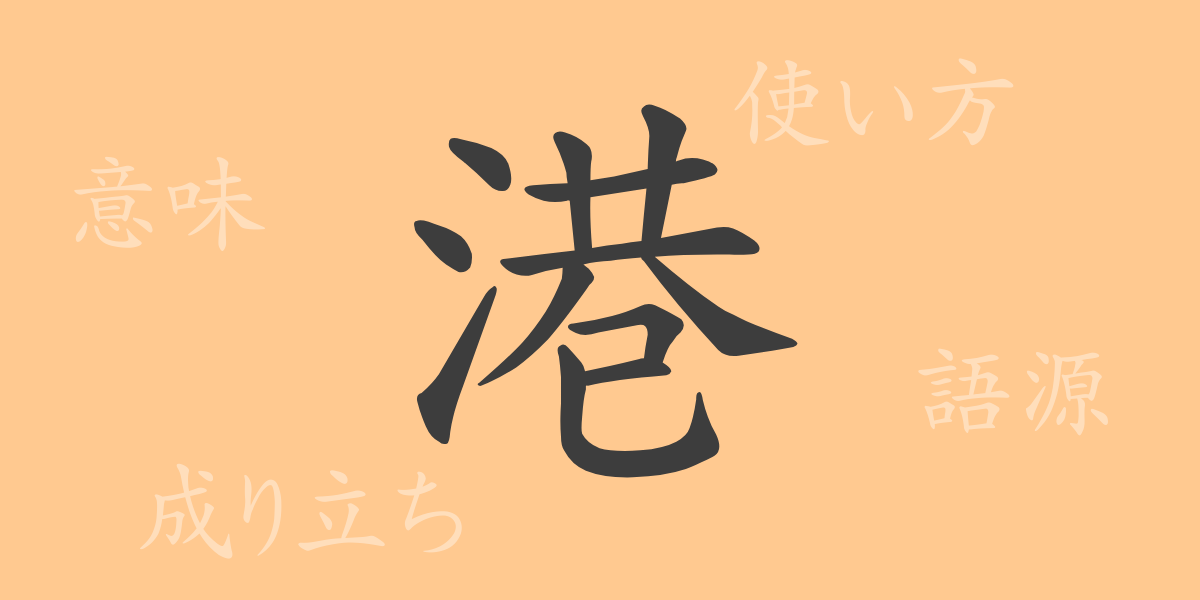Ports are deeply rooted in people’s lives and have flourished as centers of trade and cultural exchange since ancient times. The rich stories nurtured by the sea and the activities of the people living there make ports symbolic entities. This article explores the history, meaning, usage, and beauty of the Japanese kanji “港(みなと)” (port).
Origin of 港(みなと) (Etymology)
The kanji “港(みなと)” was born in China as a word meaning a place where boats dock by the water. Its etymology combines “巷(こう)” (a riverside) with “舟(ふね)” (a boat), signifying a place where boats gather. Over time, it came to play a role as a trading hub and is now known as a center for international logistics.
Meaning and Usage of 港(みなと)
“港(みなと)” refers to a place where ships dock and where cargo and passengers embark and disembark. In a broader sense, it also denotes a gathering place for people and goods or a starting point for something. Usage examples include “港町(みなとまち)” (port town), “港湾(こうわん)” (harbor), and “漁港(ぎょこう)” (fishing port), showing its various contexts.
Readings, Stroke Count, and Radical of 港(みなと)
The common Japanese kanji “港(みなと)” has a rich history reflected in its form and meaning.
- Readings: The on-yomi (Chinese reading) is “コウ(こう),” and there is no specific kun-yomi (Japanese reading).
- Stroke count: “港(みなと)” has 12 strokes.
- Radical: The radical is “みず” (water).
Idioms, Phrases, and Proverbs Using 港(みなと)
There are many idioms, phrases, and proverbs in Japanese that include “港(みなと).” For example, “帰港(きこう)” means to return to the port from which a ship departed, “港湾労働(こうわんろうどう)” refers to labor performed at a port, and “港街(みなとまち)” indicates a town with a port. These words illustrate the significant impact ports have on people’s lives and the economy.
Conclusion on 港(みなと)
A port is more than just a geographical location; it has played a crucial role in economics, culture, and history. The deep meaning embedded in the single kanji “港(みなと)” and the words that use it reflect the richness of our language and culture. Symbolizing the connection between the sea and people, “港(みなと)” will continue to weave stories for generations to come.

























